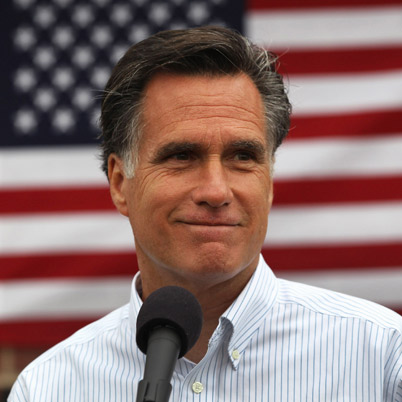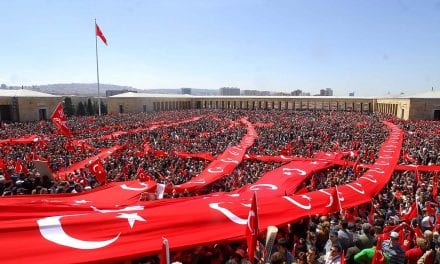By Christina Kostopoulou
Israel, England and Poland will be Mitt Romney’s grand audition as the big challenger to President Barack Obama. The Republican presidential candidate has very little overseas experience and this is going to be his first big demonstration of presidential skills in an international setting, as he will have to hold formal meetings with other leaders, and convince them about his competence to be the next commander in chief in the U.S.A.
By now is well known Romney’s tendency to misstatements, a danger that better be well controlled on his upcoming trip since a delicate diplomatic dispute will expose him much more compared to his familiar campaign at home. The focus of the trip is a politically very delicate visit to Israel, where he meets with top leaders about to close in on a critical decision on whether to launch a military strike on Iran that is opposed by the Obama administration. The relationship with Israel and the question of what to do about Iran’s suspected nuclear weapons ambitions represent one of the starkest contrasts between Obama and Romney, who mostly has defined his foreign policy largely in terms of his opponent.
“If we re-elect Barack Obama, Iran will have a nuclear weapon. And if you elect Mitt Romney, Iran will not have a nuclear weapon,” Romney said last year at a Republican primary debate focused on foreign policy.
The Israel visit comes on July 28, when Romney will meet with Prime Minister Benjamin Netanyahu, U.S. Ambassador Daniel Shapiro and President Shimon Peres. It’s not yet know whether Romney is visiting the West Bank, but he does plan a meeting with Salam Fayyad, the Palestinian Authority prime minister.
The trip will be Romney’s fourth visit to Israel. Back in 2007 he said: “I believe that Iran’s leaders and ambitions represent the greatest threat to the world since the fall of the Soviet Union, and before that, Nazi Germany.” The trip to Israel is especially crucial for the Romney campaign since he will be given the chance to reach out to Jewish voters in the U.S. and to evangelical Christians, a significant portion of the Republican base traditionally zealous about protecting the Jewish state.
Israel is just one of the areas where Romney has drawn sharp contrasts with Obama without always offering a clear alternative. He’s done that with a series of international events, including a crisis over Chinese dissident Chen Guangcheng and a hot-mic comment Obama made to then-Russian President Dmitry Medvedev.
For Romney, the trip will highlight an area where polls show he lags behind his Democratic opponent. A CBS/New York Times poll this week gave Obama a 47 percent to 40 percent lead over Romney on which candidate Americans think would better handle foreign policy.
Romney will inevitably face a strict comparison with Obama, whose overseas trip to seven countries during the 2008 campaign culminated with a speech to an audience of 200,000 at the Victory Column in Berlin.
At his first stop, in London, Romney plans meetings with British Prime Minister David Cameron, Deputy Prime Minister Nick Clegg, Chancellor of the Exchequer George Osborne, Foreign Secretary William Hague, and Ed Miliband, who leads the opposition Labour Party. He plans fundraisers, where attendees will likely include bankers and others from London’s financial sector.
Great Britain is America’s most important global ally, and the special relationship between the two countries is the main focus for any new president or secretary of state. Typically, meetings with British leaders are among the first any new American leader holds after taking office.
The Olympics, starting July 27 in London, will more likely offer Romney the opportunity to meet other foreign leaders who will be there for the beginning of the games.
In Poland a deeply Roman Catholic country that for years has favored Republicans over Democrats, Romney’s criticism may ease and he’ll likely receive a more welcoming environment. Poles have never showed the enthusiasm for Obama that Germans and other Western Europeans did, and his popularity there has declined further during his years in office. For Romney, the critical audience for his Poland trip is mostly the U.S. citizens with Polish ancestry who live in critical swing states across the American Midwest.



















